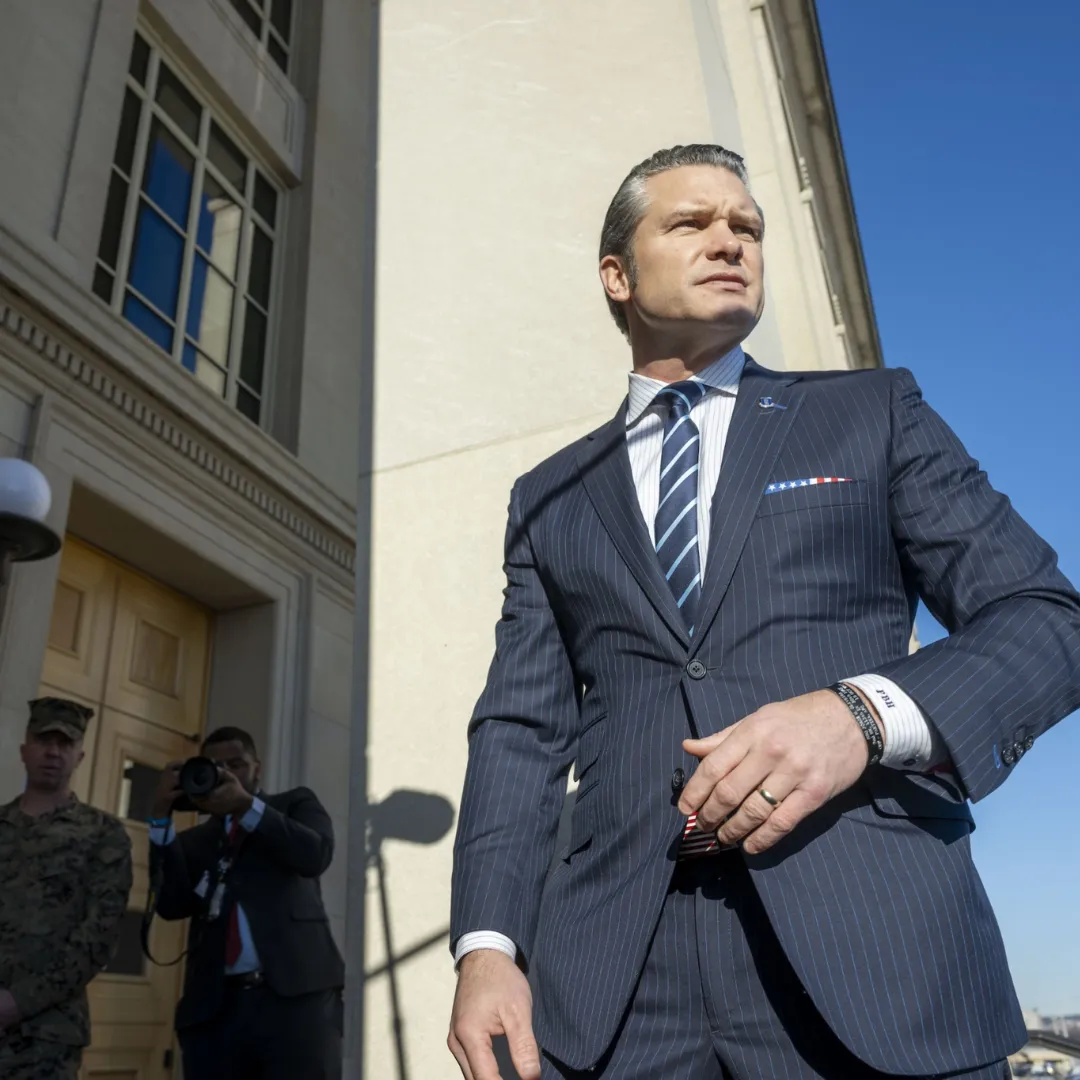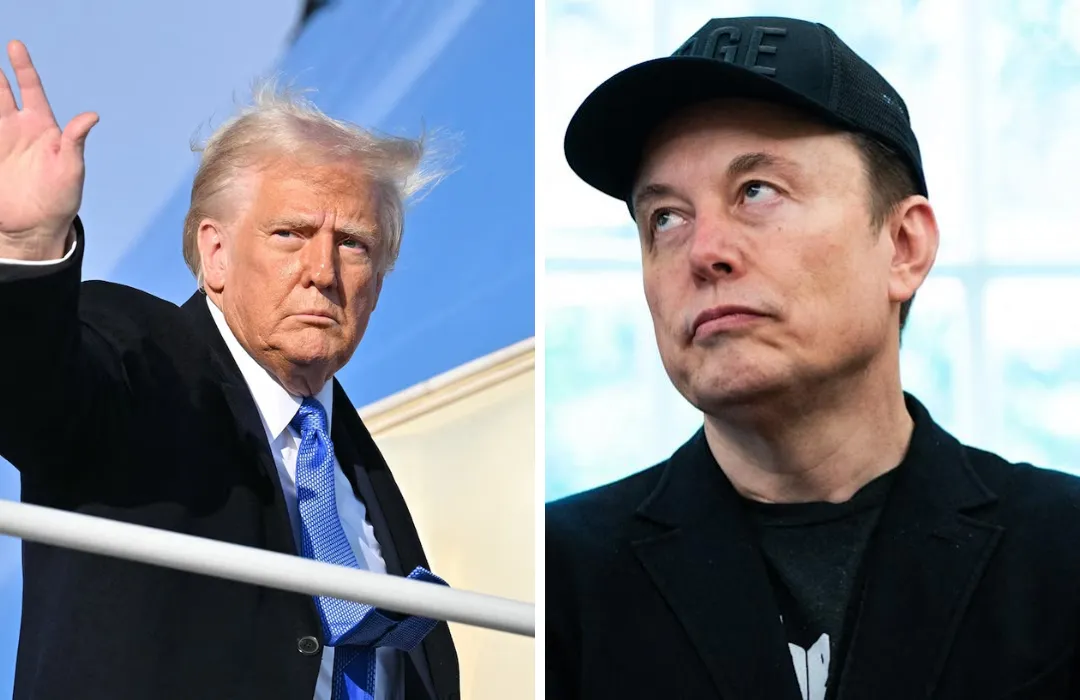
Former White House attorney Ty Cobb has dismissed President Donald Trump’s recent assertion that he would not defy a court order, even if he disagreed with it. Cobb’s comments came during an appearance on CNN’s Erin Burnett OutFront on Tuesday, where he responded to Trump’s remarks about judicial authority in relation to ongoing deportation flights under his administration.
Cobb, who previously served as an attorney in the Trump White House, stressed that public officials, including Trump, have a duty to adhere to the law and respect the judicial system.
“Oh no, they’ve made it plain,” Cobb said, referring to statements made by other members of the Trump administration, including Tom Homan, the former Border czar, and Pam Bondi, who introduced Trump at the Justice Department last Friday. “Tom Homan said, ‘We don’t care what the judge has said,’ and Pam Bondi made it clear when she introduced Trump that she and her people were there to serve him.”
Cobb pointed out that this kind of attitude contradicted the oath that public officials take, which is to serve and protect the Constitution, not to serve a particular individual.
Cobb’s comments come amid a tense standoff between a federal judge and the Trump administration over deportation flights involving Venezuelan migrants, who are allegedly linked to the Tren de Aragua criminal gang. The controversy began when U.S. District Judge James Boasberg issued a court order on Saturday, directing that deportation flights carrying migrants to El Salvador be turned around.
This ruling followed concerns about the safety of the migrants and their connections to organized crime.
The president’s response to this order, when questioned about it by Fox News host Laura Ingraham, raised additional concerns about his willingness to disregard court rulings with which he disagrees.
During the interview, Ingraham asked Trump about the administration’s decision to continue deportation flights to El Salvador, despite the judge’s directive. “Would you defy a court order?” Ingraham asked directly.
“I never did defy a court order,” Trump responded, but his tone quickly turned more defiant. “However, we have bad judges. We have very bad judges. These are judges that shouldn’t be allowed. I think at a certain point, you have to look at, ‘What do you do when you have a rogue judge?’”

Trump’s comments echoed his long-standing criticism of the judicial system, particularly judges who have ruled against him in previous criminal and civil cases. Throughout his tenure as president, Trump frequently made derogatory remarks about judges who issued unfavorable rulings, often accusing them of bias or being part of a “deep state” conspiracy.
This latest remark on court orders, however, raised alarms about his willingness to challenge judicial authority when it doesn’t align with his agenda.
In response to the court’s ruling, the Trump administration has argued that the deportation flights had already passed U.S. territory when Judge Boasberg’s order was issued, thus claiming that the judge did not have the authority to intervene.
The administration’s stance has been that the judge’s order was impractical and unnecessary, as the deportation process was already underway.
Despite the legal arguments presented by the administration, Cobb warned that Trump’s behavior was part of a broader pattern of disregarding checks and balances in favor of consolidating power. “This is nuts, what’s going on in front of Judge Boasberg,” Cobb said, referring to the situation in court.
Cobb, who has legal experience in government and law enforcement, expressed his admiration for Judge Boasberg’s qualifications, noting that the judge had previously served as the head of the Foreign Intelligence Surveillance Court (FISA Court) and was currently overseeing cases related to alien deportation.
“I think Judge Boasberg, who by the way is highly regarded and actually is the single most qualified judge in the country to handle the issue before him as the former head of the FISA court and the current head of the alien deportation court, is the most qualified person to rule on this matter,” Cobb added.
This defense of Boasberg highlighted Cobb’s view that the judge was highly respected and deeply experienced in handling such complex legal issues.
Cobb also spoke about the broader implications of Trump’s “march for power, adulation, wealth,” suggesting that the president was prioritizing his personal interests over the integrity of the constitutional system. Cobb’s comments reflected concerns among legal experts and political observers that Trump’s behavior was eroding the norms of democracy and the rule of law in the United States.

The ongoing legal and political battle over deportation flights and court orders is just one of many examples of the tensions between the Trump administration and the judicial system. In addition to the recent ruling by Judge Boasberg, the Trump administration has faced several legal challenges during its time in office, ranging from immigration policies to issues related to executive power.
This latest controversy over deportation flights reflects the growing divide between the executive branch and the judiciary, particularly regarding the interpretation of the law and the limits of executive authority. While Trump and his allies argue that their policies are in the best interest of national security, many legal experts and advocates for immigrants contend that these actions are violating the rights of individuals and undermining judicial authority.
The debate over court orders and deportation policies is also intertwined with broader concerns about immigration reform and the treatment of migrants in the U.S. The Trump administration has faced criticism from both domestic and international sources for its hardline stance on immigration, including its use of detention centers and deportation flights.
Advocates for immigrant rights argue that these policies are inhumane and that the U.S. should adopt a more compassionate approach to asylum seekers and migrants.
As the legal battle over the deportation flights continues, it remains to be seen how the Trump administration will respond to future court orders. With an increasingly polarized political environment and growing tensions between the executive branch and the judiciary, the question of whether or not the president will comply with judicial rulings remains a crucial issue.

Cobb’s criticism of Trump’s attitude toward the courts raises important questions about the president’s approach to the rule of law and his commitment to upholding constitutional principles. As the legal challenges continue, the future of Trump’s relationship with the judiciary, as well as his broader approach to governance, will likely continue to be a topic of intense debate.



